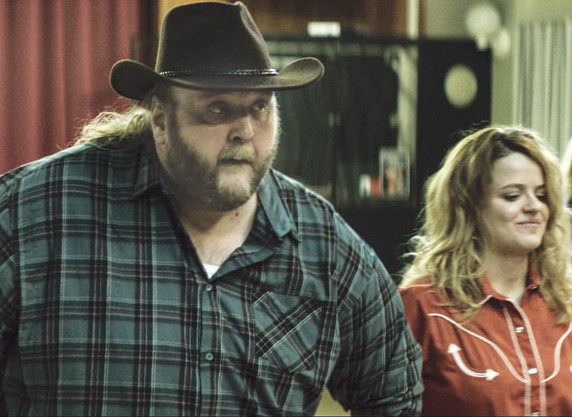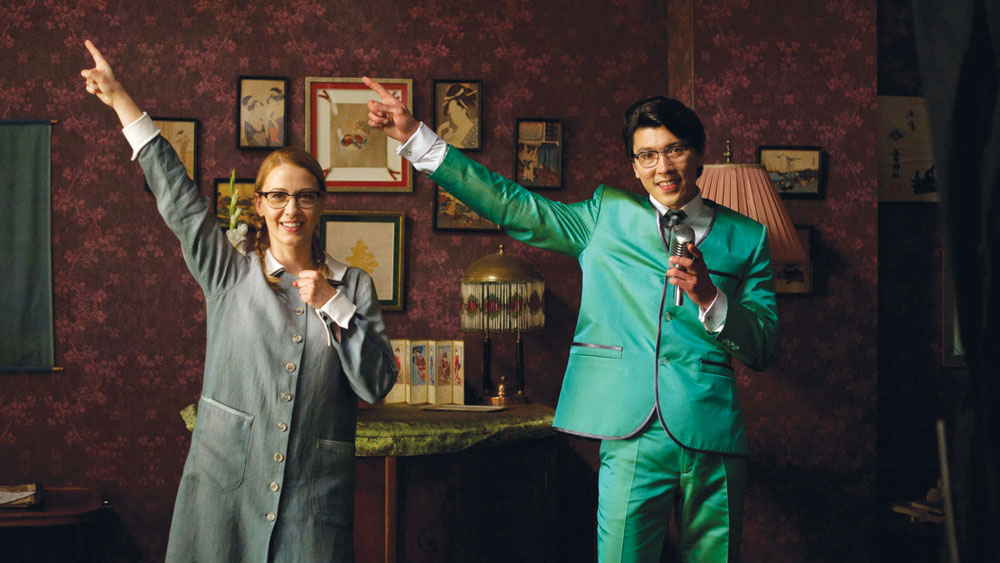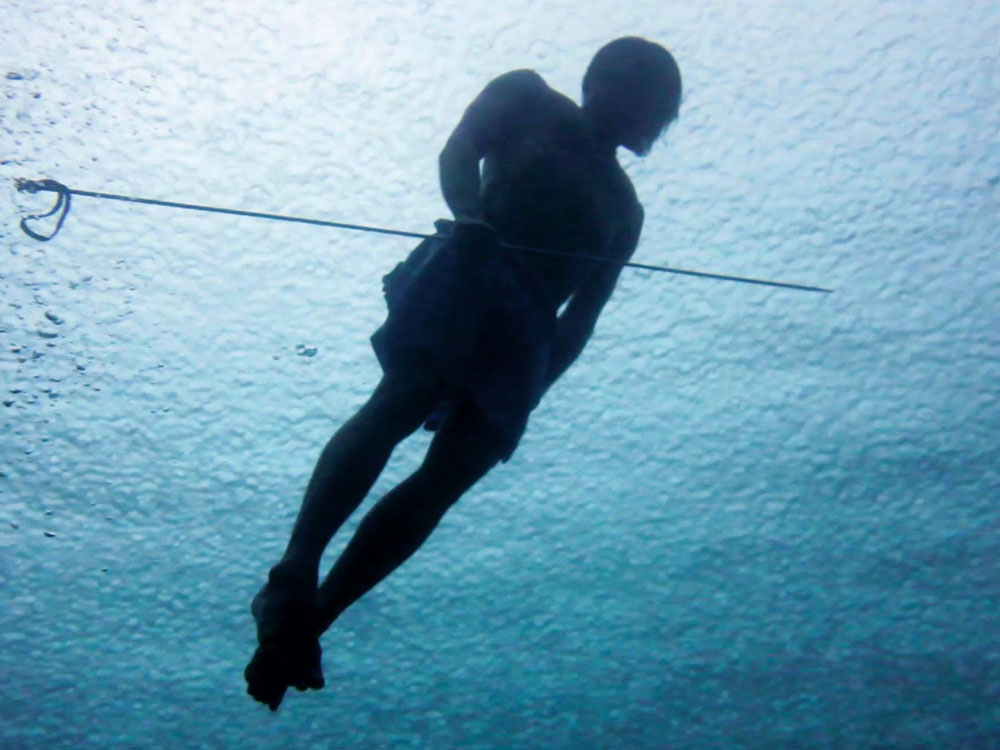 November is the best month for Denver film: the Denver Film Festival (DFF) runs from November 4–15 this year, and it is full of wonderful offerings. With so many films at the Fest, choosing one or more can be daunting. I’ve chosen a few that I believe will not disappoint. Check out the full schedule on the Film Society’s website. Enjoy!
November is the best month for Denver film: the Denver Film Festival (DFF) runs from November 4–15 this year, and it is full of wonderful offerings. With so many films at the Fest, choosing one or more can be daunting. I’ve chosen a few that I believe will not disappoint. Check out the full schedule on the Film Society’s website. Enjoy!
Virgin Mountain (2015)

Scene from Virgin Mountain
The Icelandic cinema is very much like its country/people: interesting, quirky, and unpredictable. I became a fan on a trip to Iceland last year; Icelandair flights have big screens on every seat with a selection of films from all over the world. The Icelandic films are especially good. Virgin Mountain is another in the line of these excellent films. Simply titled Fúsi in Icelandic after the eponymous character, it follows Fúsi from a dull, monotonous life to one that is soon turned upside down. A “mountain” of a man, Fúsi is bullied at work and lives with his mother and her boyfriend. They baby him. He spends his time re-enacting military battles with a friend and talking to a little neighbor girl. In the hands of another director (say, an American director), this could be very sentimental and melodramatic material. But not here. The tone straddles the line between comedy and drama in ways that American films never seem to pull off.
Writer/Director Dagur Kári was born in Paris to Icelandic parents. He returned to Iceland and later attended film school in Denmark. And while his films have a distinct Icelandic flavor, they have a tinge of the outsider looking in—and that is not such a bad thing. There is a matter-of-factness about the narrative, where things just “are.” When Fúsi receives a gift from his mother—for a line-dancing class—the story moves forward quickly. The film is expertly made with simple, elegant cinematography and excellent performances. The best of those performances is from Gunnar Jónsson as Fúsi. A comedian in Iceland, he brings a warmth and brevity to the quiet character, and a sense that there is much more beneath that (very large) surface. We root for him, and it pays off. It is a wonderful film.
Liza, The Fox-Fairy (2015)

Scene from Liza, The Fox-Fairy
This is more fun than you should ever have watching an “art film.”
This gem from first-time Hungarian director Károly Ujj Mészáros tells the story of Liza (Mónika Balsai), a live-in nurse for the former Japanese ambassador’s wife in 1960 Hungary. Liza does not leave the apartment and cares for the paralyzed, bedridden woman full time. She has been taught Japanese and listens to the Japanese pop-star Tomy Tani, who comes to life as a character only Liza can see. They sing, dance, and talk around the apartment. But when Liza leaves the house for two hours on her 30th birthday, Tomy kills the ambassador’s wife.
Wait, what? Isn’t Tomy an imaginary friend? Yes, and, well … we’re not really sure what is going on in this wacky world. But we love it. When the old woman leaves the apartment and some money to Liza in her will, Liza becomes a magnet for suitors. All of these suitors meet an untimely, albeit accidental, death, seemingly at the hands of the jealous Tomy. Of course in reality Liza is the main suspect, even though Inspector Zoltan believes she is innocent.
A cross between Amelie and Austin Powers with a hint of Japanese horror and Barbarella, this is a film that defies oversimplified labels such as “black comedy.” It is perfectly insane, imaginative, visually stunning, and downright hilarious. To see what actually happens, check it out at the Festival!
Sailing the Sinking Sea (2015)

Scene from Sailing the Sinking Sea
In its early days, documentary film bordered on ethnography. Even though much of Robert Flaherty’s groundbreaking film Nanook of the North (1922) was faked, it still gave the world a glimpse of a civilization that was going extinct. One critic, speaking of Flaherty’s films, mentioned that they had “documentary value,” hence giving a name to the new genre.
Olivia Wyatt’s new film, Sailing the Sinking Sea wasn’t faked, but it does have essential documentary value—chronicling the lives of the Moken people of Burma and Thailand. As Wyatt states: “The Moken are a seafaring community and one of the smallest ethnic minority groups in Asia, traditionally spending eight months out of the year in thatch-roofed wooden boats. Wholly reliant upon the sea, their entire belief system revolves around water.”
After an opening sequence reminiscent of Stan Brakhage, the film then follows the Moken in their water existence, using wonderful underwater image as well as meaningful montage editing to document their lives. This is a smart and thoughtful film, far from the high-dollar, issue-driven docs we have seen over the past several years. I am not criticizing those films by any means, but this is a film with only one issue: people. Other picks: Parabellum (2015), and War of Lies (2014). Enjoy the best time of the year for film in Denver!
Vincent Piturro, Ph.D., teaches Cinema Studies at Metropolitan State University of Denver. He can be reached at vpiturro@msudenver.edu




0 Comments